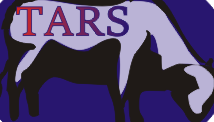Tips from the Research Bank 1:
What is research?
There are so many definitions of research. Scientists would sometimes define research differently from funding agencies, and there could also be differences, for example between natural scientists and social scientists. However, there are some universal definitions of research. I came across one of these when I started my MSc. Our statistics lecturer, one Prof Ahmed Bawa asked us to define “research”, and after going round a class of some 30+ students, he offered to rescue us. He asked us to look at the word, “research” again, and if we did, we would realise that it was actual two words without a hyphen – Re and Search. So, according to Prof Bawa, “research” is the repetition of a search. How apt. Basically most things that researchers do involves repetition of what has been done already but scientists would want to have a better answer.
Another universal definition that I encountered was from Dr Rob Barneveld, a renowned swine nutritionist. I had invited him to speak to postgraduate students when I was a Coordinator. His first slide was the breakdown of the word “research”. According to Dr Barneveld, each of the letters that make up this word could be applied to something that defines good research. These are:
R – eason
E – nd-user focus
S – tatistically sound!
E – xperience
A – pplied vs basic
R – elevance
C – ommunicate
H – ard work.
Without having to expand on this scheme and Prof Bawa’s definition, I think this is what we intend to report in this journal. There has been enormous re-search into animal production in the tropics, with very little application. We intend to point at the application of this research, and we will not mind re-visiting some of the research. We intend to promote end-user focus, develop research experience, make research relevant, develop communication skills, and support the hard work of researchers across the tropics. I could shorten this into a mission of the journal, but I am not one for catch phrases. However, we will endeavour to feature this particular segment in all issues of the journal, to help researchers and also research users. Come with us.
